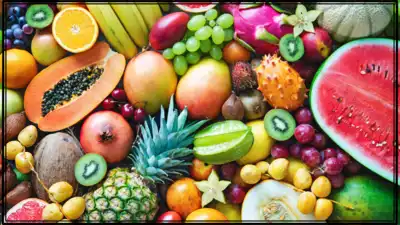Fruits are sometimes regarded as the ultimate health food, full of vitamins, fiber, and natural sugars, and our dearest friends. Most of the times, that is largely the case, but some fruits can actually increase certain medical conditions because of their sugar content, acidity, or nutrient burden.
Knowing what to steer clear of can assist you in controlling symptoms better and with more informed decisions. Below is a guide to which fruits may not be your friend if you have any of the following conditions. (source: Healthline)
Diabetes
If you have diabetes, blood glucose control is paramount. Fruits such as bananas and grapes can be harmful; they contain a high glycemic wallop. Their natural sugars are rapidly absorbed and will give your glucose levels a boost. You don’t have to eliminate all fruits, but it’s advisable to stick to lower-sugar choices such as berries and steer clear of overly ripe types altogether.
Kidney issuesFor those with compromised kidney function, potassium can build up to dangerous levels. Bananas and oranges are particularly high in potassium, which can strain the kidneys. It’s best to limit or avoid these fruits if your doctor has warned you about high potassium intake. Alternatives like apples or grapes are typically better tolerated.
Joint Pain or inflammatory conditions
If you have arthritis or chronic joint inflammation, some of the fruits in the nightshade category, such as tomatoes and eggplants, trigger inflammation. While technically fruits, these may be included in main courses rather than desserts. Many people experience flare-ups if they eat them regularly, so an elimination trial could identify whether they’re a trigger.
Bloating and gasApples, watermelon, and cherries are gut fermenters. If you have issues with bloating or discomfort in the digestive system, these FODMAP-rich fruits may be the offender. Limiting the amount or cooking them lightly might help alleviate symptoms. Watch how your body reacts, particularly if your digestive system is already sensitive.
Skin issues
Skin conditions such as acne, eczema, or psoriasis can be exacerbated by some tropical fruits. Mangoes, pineapples, and oranges are high in substances that could possibly cause inflammation or allergic responses in sensitive patients. If your flare-ups occur around fruit-laden meals, try reducing to observe if your skin improves.
Heart diseaseFatty or sugary fruits such as coconut and dried fruits are problematic for individuals with heart ailments. Dried fruits might be a healthy choice for snacks, but they tend to be calorie-rich and sugary. Coconut has been known to have saturated fat that might increase cholesterol levels. Be moderate about it.
Stomach sensitivity
If you have acid reflux or a sensitive stomach lining, pineapples and citrus fruits can irritate your system. Their acidity level is extremely high, causing discomfort or aggravating gastritis. If you suffer from digestive flare-ups, go for less acidic fruits such as bananas or melons.
Low immunityIndividuals with compromised immune systems need to exercise care with overripe or dried fruits. They may contain molds or provide a source of food for toxic gut bacteria, resulting in infections or imbalances. Fresh, well-washed fruits are always the best option, and anything which appears excessively soft or fermented or has been stored for long periods should be avoided.
High cholesterol and migraineCoconut, dried fruits, and citrus could aggravate both. Coconut’s saturated fat and dried fruits’ concentrated sugars can lead to increased cholesterol. Citrus, on the other hand, has been reported to induce migraines in others. If you’re susceptible to either, staying vigilant about your consumption can spell a difference.
